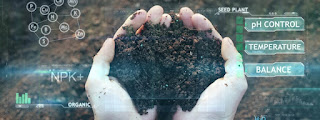Drip Irrigation System FAQs

Why Install a Drip Irrigation System? In 2020, Canadian agricultural producers required nearly 2 billion cubic metres of water to irrigate crops. Finding the most efficient way to irrigate weighs on the minds of those in industries heavily dependent on irrigation, including golf courses, agricultural operations, and landscaping. While there are three types of irrigation — surface, sprinkler, and drip — drip irrigation stands out for its ability to conserve water and deliver it directly to the root system. Correctly installed drip irrigation systems minimize runoff and evaporation, which waste water. As a result, you can save up to 50% of the water required by other irrigation systems. Further, these systems emit water directly where the plant needs it the most, at its thirsty root zone. As a point of comparison, sprinklers distribute water randomly, so, much of it is lost to evaporation. By sending water directly to the root system, you reduce the r...


